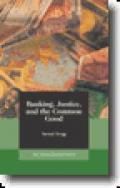


Two months ago Russian president Vladimir Putin signed into law a number of “anti-terrorism” measures that limit missionary and evangelistic efforts and restrict the religious freedoms on non-Orthodox groups.
As Christianity Today notes, to share their faith, citizens must now secure a government permit through a registered religious organization, and they cannot evangelize anywhere besides churches and other religious sites. The restrictions even apply to activity in private residences and online.
Why is Russian taking implementing such constraints on believers? Eric Patterson provides some context and shows how the laws fit into Russia’s continuing suspicion of “foreign” influences:
Are Russia’s restrictions new? No. The July 2016 law extends a 1997 law, signed by Boris Yeltsin, restricting the activities of religious individuals and groups. The law was billed as an anti-terrorist measure, and it is true that over the years the Russian government has shut down the activities of a few radical mosques around the country. But it is clear that these restrictions are not really focused on violent Islamists or other terrorist actors. A simple look at the restrictions makes this clear: restrictions on public meetings, inviting foreign pastors or missionaries to visit, restrictions on publishing and broadcast, zoning and permit requirements, and other legal intrusions.
These restrictions should also be understood in light of the2012 “foreign agent” lawin Russia. The purpose of that law, ostensibly, was to restrict the activities of foreign agents and foreign ing in to Russia to alter the political landscape. The actual target, however, was NGOs and human rights organizations. Indeed, it is estimated thatone third of NGOsoperating in Moscow have shut down since the 2012 law.
Similarly, the religious restriction laws have been used to target Jehovah’s Witnesses, the Church of Scientology, and more traditional evangelical Christian groups. It is hard to understand how Jehovah’s Witnesses or Scientologists can be seen as a threat to Russian national security in ways analogous to Islamic State or al Qaeda affiliates.
Read more . . .









